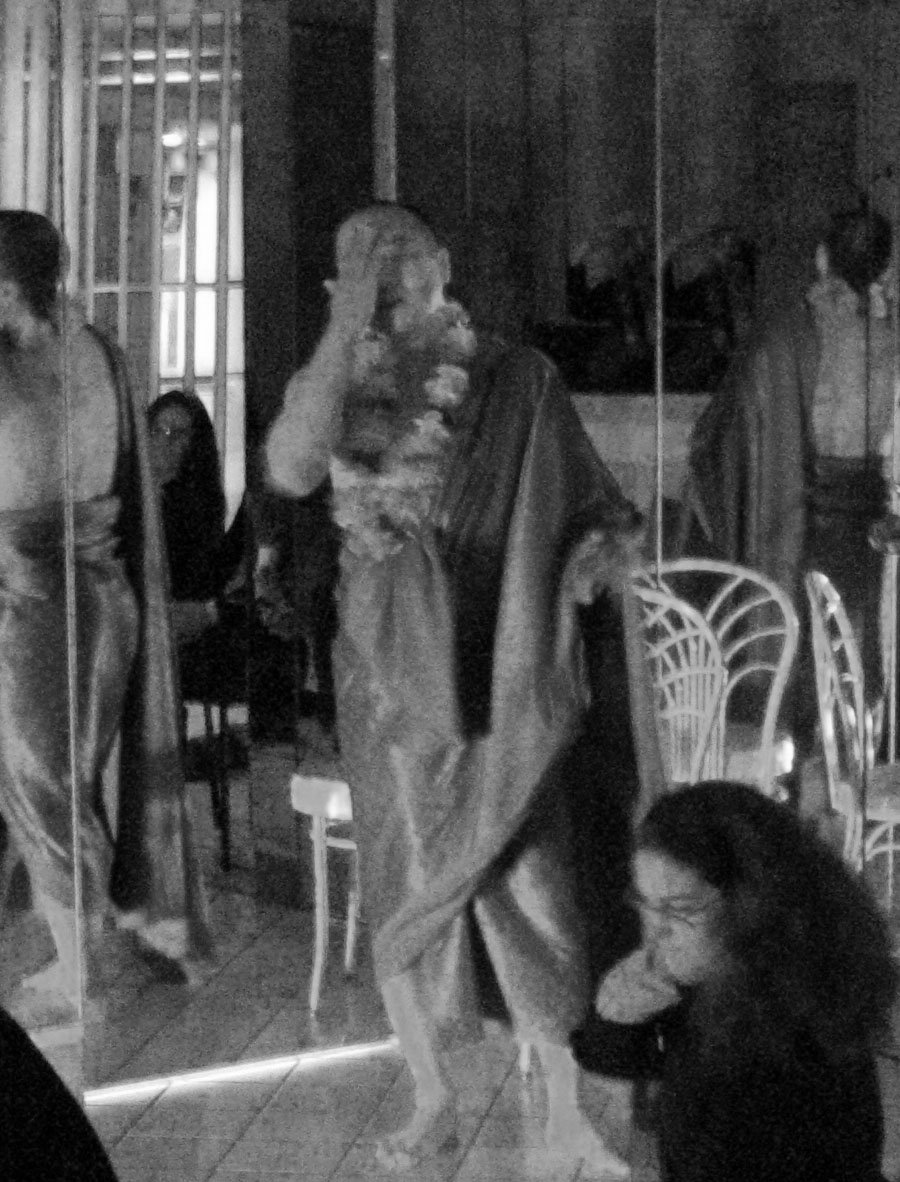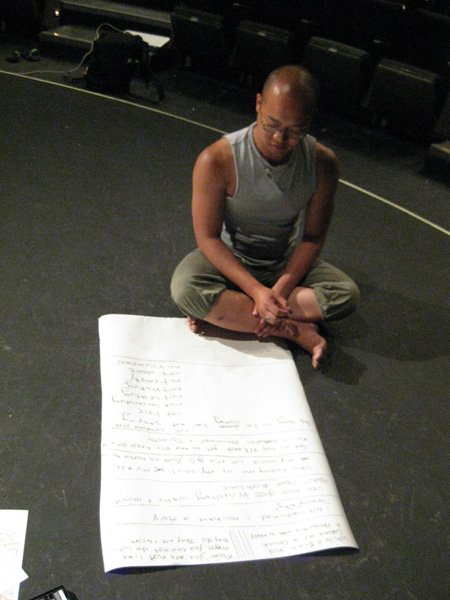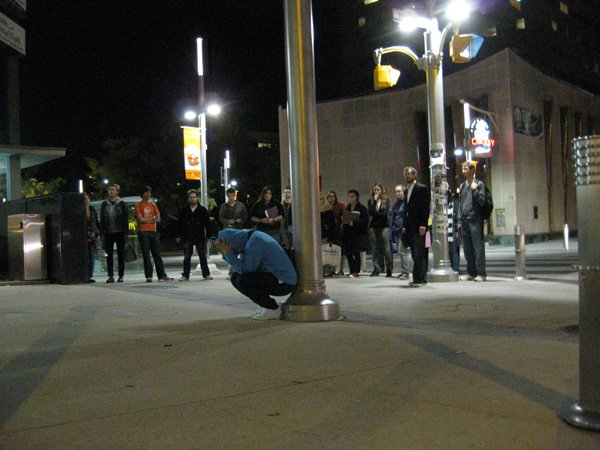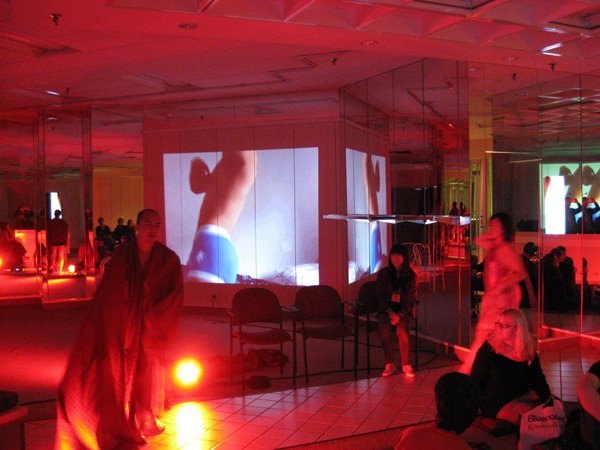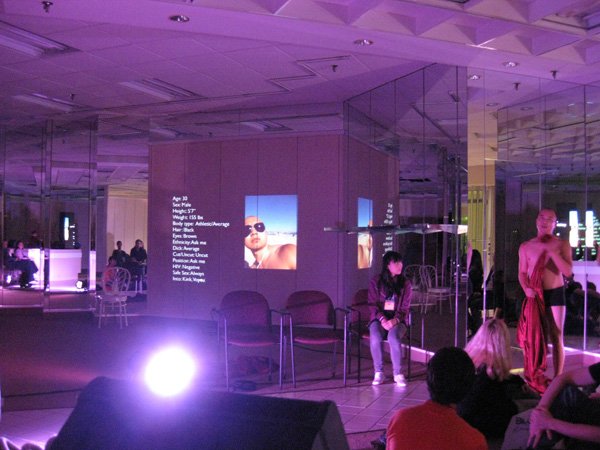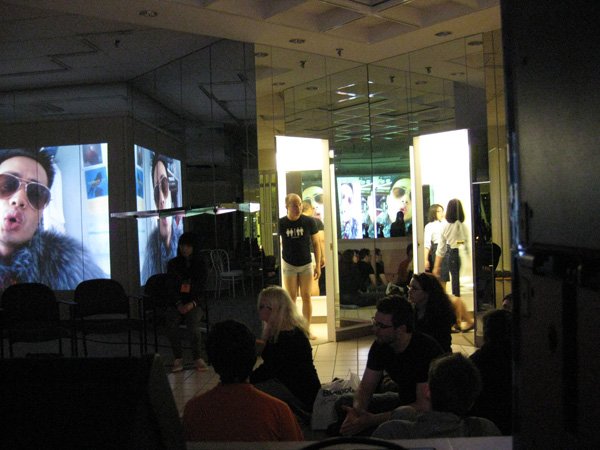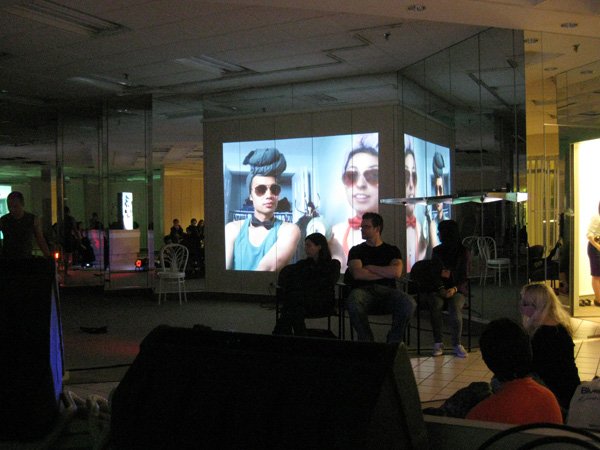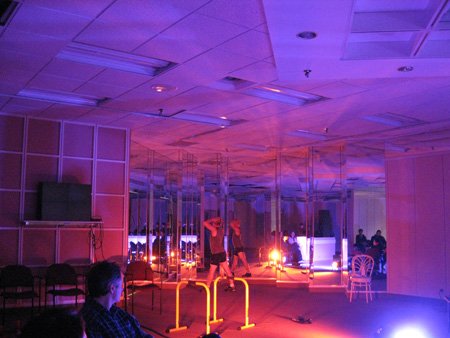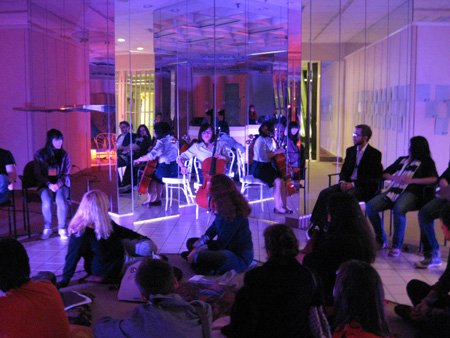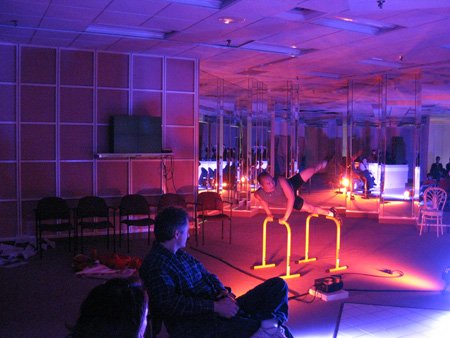HERE BE
“Social differences are not simply given to experience through an already authenticated cultural tradition; they are the signs of the emergence of community envisaged as a project – at once a vision and a construction – that takes you ‘beyond’ yourself in order to return, in a spirit of revision and reconstruction, to the political conditions of the present.”
DRAGONS
EXPERIENCE
THE AUDIO
The process of establishing and articulating the self always occurs in relationship to others. Homi Bhabha reminds us that this process also involves the examination of another key relationship: between knowledge of the experience of the past and an active engagement with the present. Located in this interstitial space of relating between people and their history exists a time of revision and reconstruction. In Here Be Dragons we’ve chosen a couple of blocks of King Street, Kitchener’s ‘main drag’ so to speak, and a disused women’s clothing store in the Market Square Mall as spaces, and the time we’re exploring comes from personal histories of the three performers working on the project and in the event of creation on each of the three nights we perform.
As the director of this project, I hope that the time and space that we are exploring through various media may open up a theoretically innovative and politically vital cultural forum where elaborating strategies of selfhood – singular or communal – may initiate new signs of identity, innovative sites of collaboration and contestation, and at the very least pose important questions about the displacement of the peoples lives we’re ‘mapping’ here tonight; such questions will surely put us on the path of meaningful discussion and greater understanding.
ABOUT THE
PROJECT
Here Be Dragons attempts to map a terrain that is focused less on traditional cultural claims of value and more on their limits. Our map follows a path of displacement, at the edges of traditional discourses of identity, usually inscribed in Kitchener as European-in-origin, middle-class and heterosexual; instead, we are offering a tour that proposes identity as a form of social and textual affiliation which does not deny these dominant histories and the particular meanings of the hereent subjects who participate in this construction, but rather attempts to formulate a complex strategy of cultural identification and discursive address that exists as a liminal presence in-between these subjects, in a flux of time, and functions in the name of who Bha Bha calls “the people.”
Bhabha conceives of 'the people' as existing within a range of discourses as a "double narrative movement" (Bhabha 149), between those rooted in the pedagogical objects of historical and political tradition, and those which take up a performative subjectivity to this object, reflecting the continual state of change of present circumstances. Here the liminal "space of the people" emerges in the tension between signifying the people as an a priori historical entity, and the people constructed in the performance of narrative. The liminality of the people's identity – their double inscription as pedagogical objects and performative subjects – demands a 'time' of narrative that is denied in the discourse of historicism where narrative is only the agency of an historical pedagogy, or the medium of a naturalistic continuity of community or tradition.
